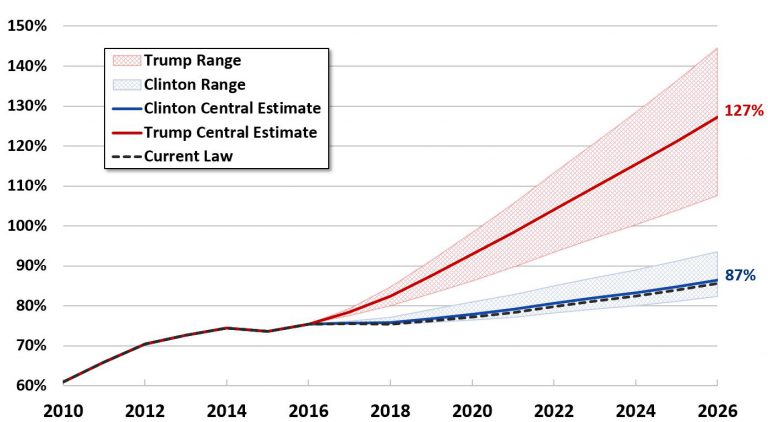It’s been a busy week at the Mansion of Wrong, with out-of-town family staying with us. There were parties, dinners, trips to NYC, and limited blogging. Wrongo and Ms. Right accompanied our guests to the 9/11 Memorial Museum. Since our first visit, the Museum decided to exhibit a composite of five floors worth of material from one of the Twin Towers that was heat-fused and compacted during their collapse. It is a truly horrible object, a charred and pitted lump of fused concrete, melted steel, carbonized furniture and less recognizable elements, a meteorite-like mass that no human force could have forged, and it is unforgettable. It is among Wrongo’s favorite pieces in the collection:

This weighs between 12 and 15 tons. It is four feet high. If you ever thought that humans remaining in the WTC when it collapsed might have survived, consider this pancake comprising five floors of the North Tower. Please visit the Memorial and Museum if you haven’t been there yet.
Here are a few links for Friday wherein Congress acted with unusual bipartisan, but self-serving alacrity:
Congress overrode Mr. Obama’s veto of the bill permitting 9/11 victims to sue Saudi Arabia: Despite the efforts of the White House to kill “The Justice Against Sponsors of Terrorism Act “(JASTA), it will become law after yesterday’s veto override. The vote was 97-1 in the Senate, and 348-77 in the House. Very few in Congress wanted to be seen as against the 9/11 families in the weeks leading up to the election. The bill allows 9/11 victims and their families to sue Saudi Arabia for damages. JASTA is fairly narrowly tailored to Saudi Arabia, but it is unlikely to result in any accountability on the part of the Kingdom of Saudi Arabia.
In another show bipartisanship, Congress averted a government shutdown Wednesday as the Senate and the House approved a short-term spending bill, allowing lawmakers to avoid a crisis and return home to campaign. The Senate approved the bill by 72 to 26. The House then approved it by 342 to 85. This kicks the can down the road for 10 weeks, when the partisans will come out all over again with knives sharpened.
The House passed a bill Thursday that would give tax breaks to Olympic athletes who win medals. The measure does not apply to athletes with incomes over $1 million. The Senate approved it earlier this year. The House approved it 415 to 1. What Congress person wants to be viewed as anti-Olympian in an election year?
The lone dissenting vote came from Rep. Jim Himes (D-CT), who said:
We’ve got a Zika crisis, an opium epidemic and gun violence in the news every day…I think those are the issues that Congress should be spending time on.
He is not Wrongo’s Congress Critter, but he has Wrongo’s vote. Why should Olympians get tax breaks when other extraordinary Americans don’t? Nobel Peace Prize winners and Special Operations soldiers still have to pay their taxes. You pay your taxes, (well, maybe not you, Donald Trump). Another piece of bad policy by Congress.
That’s three cases of false bipartisanship in one week by the cynical people we keep electing.
This article suggests questions that should be asked of Trump about his taxes. Trump claims he can’t release his returns because he’s under audit. That could be a legitimate concern. It would hardly be fair if hundreds of tax professionals who oppose Trump politically helped the IRS by publishing their own analyses of the returns.
But, Trump pissed off Wrongo when he said how smart he was not to pay any taxes. On the one hand, none of us wants to pay more than we have to, but then along comes a billionaire who pays no taxes, and brags about it.
This is the guy who complains about the size of national debt, and says NATO members aren’t paying their “fair share”, when he isn’t paying his “fair share”.
Finally, a statue of Eagle Glenn Frey has been installed in the “Standing on the Corner” Park in Winslow, Arizona. Frey died in January. You remember the lyric:
Well, I’m standing on a corner in Winslow, Arizona, such a fine sight to see/It’s a girl, my Lord, in a flatbed Ford slowin’ down to take a look at me.
Frey’s statue joins that of song co-writer Jackson Browne that has been in the park since the late 1990s.


